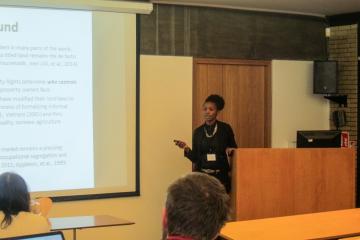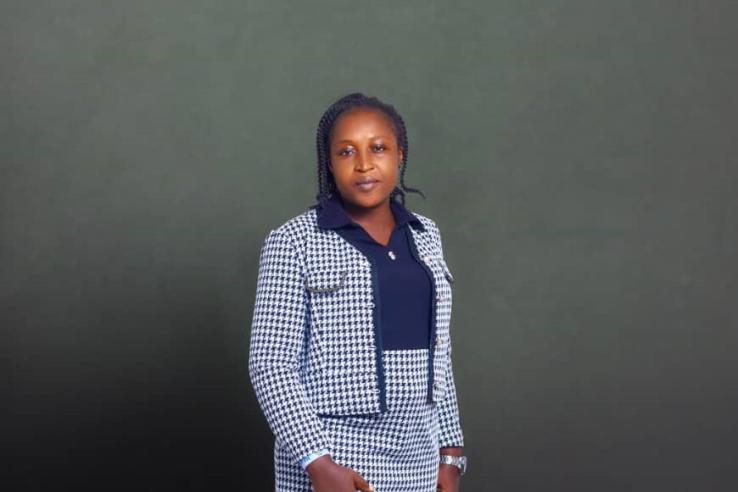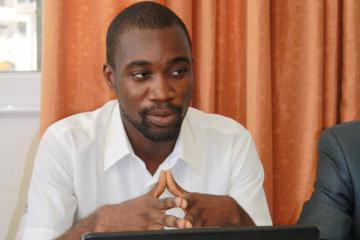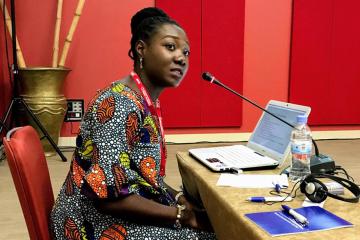
African Scholar Spotlight: Oluwabunmi Adejumo

This post is part of our ongoing series showcasing the work and perspectives of economists from the African continent who are leading randomized evaluations. Through our African Scholars Program, we hope to help create more opportunities for African researchers to advance the research agenda on the continent through randomized evaluations. In this spotlight, we speak with Oluwabunmi Adejumo of Obafemi Awolowo University, Nigeria
What drew you into the field of development economics and in particular, working with impact evaluations?
I have always been passionate about working in underdeveloped regions and playing a role in addressing the persistent challenges in development circles. Development economics allows me to engage directly in these contexts. Earlier in my career, I worked with macroeconomic data for research but found this somewhat removed from the issues confronting households and people in developing economies. My fellowship with the Center for Effective Global Action (CEGA) allowed me to achieve my vision of conducting studies in microdevelopment economics, which has been largely worthwhile.
What are your broad research interests?
My broad research interests include labor and development issues. In labor economics, I focus on human capital development, entrepreneurship, and productivity. Within development economics, I am particularly interested in gender, education, agriculture, and the environment.
What are you using initiative funds to do? What research question are you trying to answer and how does it relate to your context?
I have been awarded a proposal development grant by J-PAL and CEGA to explore the potential of piloting interventions and conducting a randomized controlled trial (RCT) on livestock farmers in Nigeria. The project aims to assess whether the provision of digital, personalized agricultural advisory services, combined with output market access, improves smallholder farmers’ performance in Nigeria. The proposed intervention of digitizing extension services and market access is expected to enhance livestock farmers' digital uptake, productivity, and profitability.
What do you see are the big unanswered research questions in your context that RCTs may be able to help answer? Does this relate to any projects you are excited to work on in the future?
I would like to use RCTs to address gender issues and mitigate challenges to women's empowerment in developing economies. RCTs can be useful in evaluating interventions on education and wealth-gaining programs for women and girls in marginalized, underserved, and hostile communities. This will not only bridge the gender gaps and inequalities that are persistent in developing economies but also foster inclusive development across the gender divide.
How has the support you have received from J-PAL to date assisted you in your career? How can organizations like J-PAL continue to build on the support they provide to local researchers in running randomized evaluations?
The funds from J-PAL and CEGA have been instrumental in allowing me to conduct preliminary surveys and studies in education and agriculture. Beyond the funding, J-PAL has been instrumental in fostering collaborative research with other local and international Scholars. To further promote and support the development of RCTs by local researchers, I believe J-PAL should continue to offer support through workshops, mentoring, and capacity building. Additionally, J-PAL could also organize stakeholders' forums focused on training, module development, and curriculum redesign in higher institutions.
Do you have advice to offer other young aspiring African scholars thinking about a career in economic research?
I encourage aspiring scholars to pursue research that influences development and policy decisions. Research can be more impactful when it guides policy and stimulates development in the right direction.
What advice would you give to scholars who are considering applying to J-PAL for funding?
I encourage researchers applying for J-PAL funding to ensure they are well-trained in impact evaluation methods. This will enable them to manage research projects and deliver on project outputs. Additionally, it is important for researchers in developing economies to be proactive in seeking collaborations for joint applications and publications.


